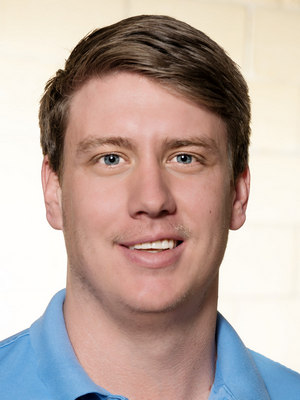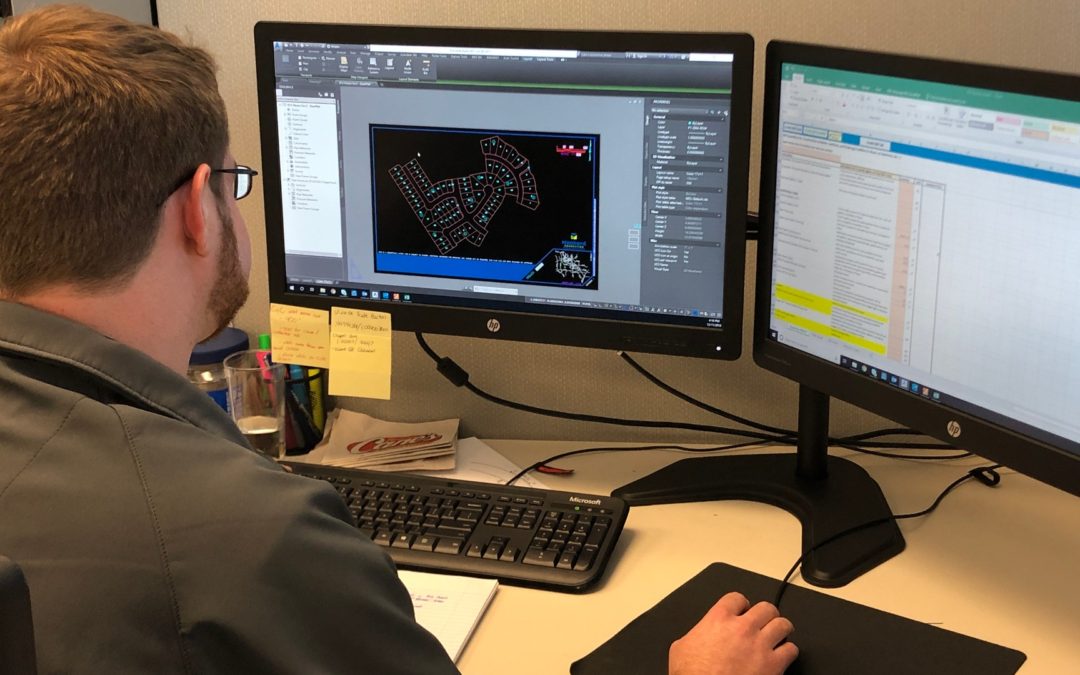“I wish I’d known then what I know now.”
I can’t tell you how many times I’ve had that thought. Or how many times I’ve been asked that. But I do remember one time in particular. About a year ago, an intern at my office asked me, “What do you wish you’d known when you were interning?” Haha … that poor young woman had no idea how many things were on my list of “I wish I’d known.”
Rather than bore you with the litany – as I did with her – I interviewed three young engineers who are each just six months into their first job. It was no surprise that they had a lot to say.
The Engineers
Nathan Hahn

Graduated in May 2018 from Texas Tech University with a Bachelor of Science in Civil Engineering.
Currently works for Manhard Consulting in The Woodlands, Texas.
Ali Jamali

Graduated in May 2018 from Texas Tech University with a PhD in Petroleum Engineering.
Currently works for DeGolyer and MacNaughton in Dallas, Texas.
Paul Krueger

Graduated in May 2018 from Texas Tech University with a Bachelor of Science in Civil Engineering.
Currently works for Parkhill, Smith, & Cooper in Lubbock, Texas.
Yes, I know a lot of people from Texas Tech. Next time I interview engineers, I promise I’ll branch out.
Internships – Necessary or Not?
This was a split decision among the group. Nathan and Paul had internships and credited them with helping during their job hunt. Ali did not participate in an internship but found other ways to advance his career during the summers when his fellow students were on internships.
“The internship definitely helped,” said Paul. “Not only for the obvious reason of building my resume, but also for developing my long-term goals.”
“I think it helped,” said Nathan. “I think the person looking at my resume took me a little more seriously.”
Ali, on the other hand, remained focused on personal education during his summers.
“If you don’t get an internship, do something like learn a programming language. Become a member of Toastmasters. Improve your writing skills. Just do something useful with your time,” said Ali. “Once you have the interview, you have the opportunity to make them forget that you didn’t do an internship.”
Having hired a number of engineers straight out of college, I can see that they all have points. If a candidate had an internship, I asked questions about what they learned on their projects. If they didn’t, I asked questions about their classes and opened the discussion around the personal projects they undertook.
<this will be inset> Recruiter Tip: If you can’t get an internship, volunteer for a non-profit. Especially if you can do some work for them that is related to your major or a skill building activity (programming, writing, project management, etc.)
If a candidate didn’t have either experience but they were fantastic at Fortnite, I lost a little of my interest in them.
If You Could Speak at Your Alma Mater
All three engineers provided a variety of advice they would give to students if they were asked to speak at their alma mater. Interestingly, all three mentioned one item in particular: communication skills. From speaking in meetings to presentations in front of peers and clients, improved communication skills are necessary as soon as you start your job (if not before) and would be great to work on during school.
Ali and Nathan were both members of local Toastmasters clubs in college and referenced the organization. Paul’s office has a group of engineers who get together on a regular basis to work on presentation skills.
Verbal communication wasn’t the only skill, though. Developing technical writing skills and the ability to create clear, concise, and informative emails were also seen as important.
From there, the suggestions diverged a bit:
- Take the PE exam as soon as possible – “Don’t sit on it and wait,” said Nathan. “It will be that much harder to study once you’ve been out of school for a few years.”
- Learn to write computer code – “It’s very useful, no matter what engineering field you’re in,” said Ali. “Regardless of your degree, at the end of the day, you’re going to be dealing with a computer.”
- Get involved in an engineering organization – “It’s important to get involved at the local level,” said Paul. “You’ll make connections and find people who are looking to hire.”
Once You’re on the Job
- Put in extra effort – “The harder you work in the beginning, the easier it will be later on,” said Nathan. “If you’re working 46 hours a week, you’re getting six extra hours per week of experience and that builds up over time.”
- Help others – “Be a helpful person,” said Ali. “Having the right attitude is more important than being smart.”
- Take ownership – Not only does it help you do a better job, it feels great, too. “When I started putting my name on things,” said Paul, “I got a real sense of ownership. I got to make someone’s life better.”
The Final Takeaway
Over and over, each of the three referenced soft skills in one form or another.
As Paul said, “No one is doubting your skills in STEM.”
All students graduating from an accredited university have those skills. You can set yourself apart, though, by bringing some soft skills to the table and simply being personable.
“Be a person that people enjoy being around,” said Ali. “That’s underrated in the job process.”
From the perspective of someone who hires, these do set you apart. I’ve participated in a lot of group interviews. I always let the other managers in the room quiz the candidates on their technical skills. I pushed the candidates to speak and communicate ideas. I reviewed their resumes to see if they could write intelligently. I looked for people who were personable and humble.
Finally, here’s one last bit of advice that Nathan’s boss told him the morning before I interviewed him, “Make your career. Don’t wait for someone else to guide you. Be proactive.”

Author: Tracy Thomason
Agile project manager by day, craft beer drinker by night, and avid reader anytime I can get 5 minutes alone with my Kindle.
More posts by Tracy
Featured photo of Nathan Hahn working by Aubrey Brockman.


Excellent article. Having worked in a technical field all of my career, I agree that soft skills are not stressed enough in university.
Thanks Pam! I agreed with all of the young engineers. I wish someone had told me that back when I was in school.